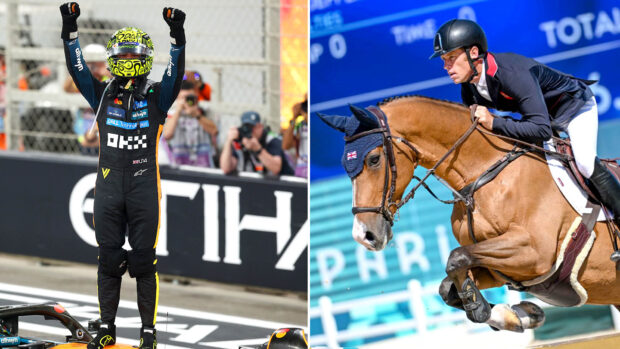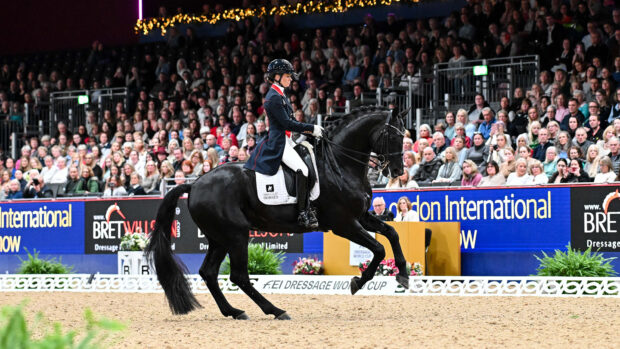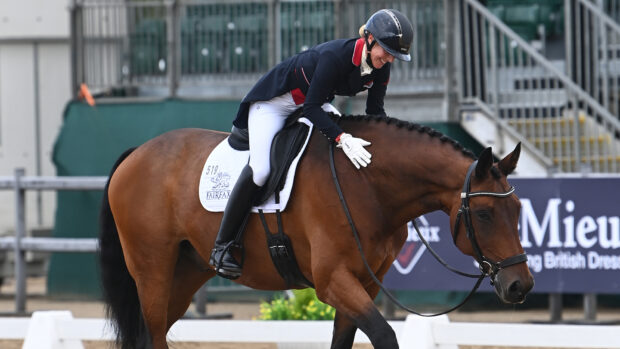Anna Ross shares her thoughts on the professionals versus amateurs debate, and some less orthodox ways of producing sane young horses... fancy dress anyone?
WHILE following the recent debate regarding top riders competing at lower levels, I wondered if I was missing something? British Dressage (BD) has catered for so many below medium level; surely between the Associated Championships, Area Festivals, Team Quest, My Quest, bronze, silver and gold at championships, there is something for everyone?
Fairness is an emotive topic, especially in a subjective sport. Broadly, it appears that BD is aiming regionals and nationals towards professional riders and Area Festivals towards amateurs. Splitting the silver section over both gives riders the choice of where they pitch it and for some it will always be the letter of the law over the spirit of the class.
Adding the word “amateur” to the Area Festival Championship title could define the spirit of that competition and deter professionals, as it would contradict their status.
A quick poll on my social media revealed plenty of confusion about rules, with riders believing they were excluded from certain sections due to having competed at a higher level more than four years ago. Riders’ perceptions of where they should be placed varied enormously, which only illustrates BD’s challenge.
Some amateurs are incredibly hard on themselves if they don’t reach the nationals or score over 70%. Some riders advertise themselves as professionals, but appear to compete in classes aimed at amateurs.
Others aim for the national championships, but feel the very best riders should not be in their class. But if the best weren’t at the championships, the championships would lose their kudos. Riders feel satisfied with results for myriad different reasons.
Success leaves clues. How many amateurs are able to train as much as the top riders, both on the horse and in the gym when working full time? Professionals ride all day, go home and watch dressage on TV at night, sometimes sacrificing relationships, family life or having children in the pursuit of competitive aspirations.
Some do appear to have it all and there’s no doubt that wealth helps achieve that. But even for the super-rich, success comes at a price and everyone pays. With a high profile in any walk of life, there is inevitably public criticism, trolling and pressure. For some, it proves too expensive – and not just in monetary terms.
A quest to produce sane horses
IN the pursuit of my own grand passion, I have been monopolising the yard transport as more horses have moved up to grand prix and need experience. I’m excited about Habouche, who we’ve owned from a four-year-old – though she is very green at the level, she is showing good promise.
She has a lot of power, but I’ve ridden too many “crazies” in my career and have been determined to make sure she has an all-round education.
Her routine has always included lots of hacking, she’s been treated as a “normal” horse, taking part in demos and open days, and she’s seen the world with our team of riders, both nationally and internationally, in a quest to create a well-behaved citizen with a high-powered engine.
Having been set this fine example of “normality” in equine education, my intrepid team, undeterred by the limitations imposed by my transport schedule, entered our young horses in the local fancy-dress competition.

Hannah Luesley and rising five-year-old Grand Design show off their fancy dress at a recent show.
Our future grand prix horses, the sons and daughters of international stars, attended their first show dressed as nuns, a pirate, a three-eyed monster, and one of my team most ingeniously used a crucifix to double up as her neck strap.
No prizes were won for the fancy dress, but future international competitions will hold no fears for these young horses, who encountered SpongeBob SquarePants on their first-ever outing.
It might not be the most conventional way to introduce blue-blooded horses to the sport, but I bet their future owners, whichever section they ride in, will thank us later.
● What do you think about the current BD competition structure? Tell us at hhletters@futurenet.com
- This exclusive column will also be available to read in Horse & Hound magazine, on sale Thursday 27 January
You may also be interested in…

Pammy Hutton: ‘Top riders shouldn’t compete at the lower levels’

Alice Oppenheimer: ‘It’s good to strive to beat the best’

Quirky dressage mare bought via Horse & Hound wins at grand prix

Subscribe to Horse & Hound magazine today – and enjoy unlimited website access all year round




